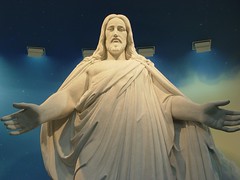| 5435664334 | allegory | a story, poem, or picture that can be interpreted to reveal a hidden meaning, typically a moral or political one. |  | 0 |
| 5435664335 | antithesis | a person or thing that is the direct opposite of someone or something else. |  | 1 |
| 5435666847 | ambiguity | uncertainty or inexactness of meaning in language. |  | 2 |
| 5435669357 | undertone | an underlying quality or feeling. |  | 3 |
| 5435669358 | antecedent | a thing or event that existed before or logically precedes another. |  | 4 |
| 5435672446 | metonymy | the substitution of the name of an attribute or adjunct for that of the thing meant.. |  | 5 |
| 5435674446 | parallelism | the use of successive verbal constructions in poetry or prose that correspond in grammatical structure, sound, meter, meaning, etc. |  | 6 |
| 5435676170 | synecdoche | a figure of speech in which a part is made to represent the whole or vice versa |  | 7 |
| 5435680146 | kennings | a compound expression in Old English and Old Norse poetry with metaphorical meaning, e.g., oar-steed = ship |  | 8 |
| 5435680147 | caesura | (in Greek and Latin verse) a break between words within a metrical foot. (in modern verse) a pause near the middle of a line. |  | 9 |
| 5435683445 | alliteration | the occurrence of the same letter or sound at the beginning of adjacent or closely connected words. |  | 10 |
| 5435762801 | allusion | an expression designed to call something to mind without mentioning it explicitly; an indirect or passing reference. |  | 11 |
| 5435765296 | symbol | a thing that represents or stands for something else, especially a material object representing something abstract. |  | 12 |
| 5435767927 | elegy | a poem of serious reflection, typically a lament for the dead. |  | 13 |
| 5435769953 | eulogy | a speech or piece of writing that praises someone or something highly, typically someone who has just died. |  | 14 |
| 5435771681 | patronymic | a name derived from the name of a father or ancestor, typically by the addition of a prefix or suffix, e.g., Johnson, O'Brien, Ivanovich. |  | 15 |
| 5435774155 | thane | (in Anglo-Saxon England) a man who held land granted by the king or by a military nobleman, ranking between an ordinary freeman and a hereditary noble. |  | 16 |
| 5435776328 | enjambment | (in verse) the continuation of a sentence without a pause beyond the end of a line, couplet, or stanza. |  | 17 |
| 5435778396 | scansion | the action of scanning a line of verse to determine its rhythm. the rhythm of a line of verse. |  | 18 |
| 5435781645 | Zeitgeist | the defining spirit or mood of a particular period of history as shown by the ideas and beliefs of the time. |  | 19 |
| 5435797529 | personification | the attribution of a personal nature or human characteristics to something nonhuman, or the representation of an abstract quality in human form. |  | 20 |
| 5435797530 | juxtaposition | the fact of two things being seen or placed close together with contrasting effect. |  | 21 |
| 5435800534 | volta | Italian word for "turn." In a sonnet, the volta is the turn of thought or argument: in Petrarchan or Italian sonnets it occurs between the octave and the sestet, and in Shakespearean or English before the final couplet. |  | 22 |
| 5435800535 | paradox | The term Paradox is from the Greek word "paradoxon" that means contrary to expectations, existing belief or perceived opinion. It is a statement that appears to be self-contradictory or silly but may include a latent truth. |  | 23 |
| 5435803940 | euphony | from the Greek word "euphonos" that means sweet-voiced. It can be defined as the use of words and phrases that are distinguished as having a wide range of noteworthy melody or loveliness in the sounds they create. |  | 24 |
| 5435803941 | cacophony | the use of words with sharp, harsh, hissing and unmelodious sounds primarily those of consonants to achieve desired results. |  | 25 |
| 5435807177 | epithet | a descriptive literary device that describes a place, a thing or a person in such a way that it helps in making the characteristics of a person, thing or place more prominent than they actually are. Also, it is known as a by-name or descriptive title. |  | 26 |
| 5435807178 | satire | a technique employed by writers to expose and criticize foolishness and corruption of an individual or a society by using humor, irony, exaggeration or ridicule. It intends to improve humanity by criticizing its follies and foibles. |  | 27 |
| 5435819557 | Gothic | a style of writing that is characterized by elements of fear, horror, death, and gloom, as well as romantic elements, such as nature, individuality, and very high emotion. |  | 28 |
| 5436090389 | onomatopoeia | a word, which imitates the natural sounds of a thing. It creates a sound effect that mimics the thing described, making the description more expressive and interesting. |  | 29 |
AP Lit Semester 1 Flashcards
Primary tabs
Need Help?
We hope your visit has been a productive one. If you're having any problems, or would like to give some feedback, we'd love to hear from you.
For general help, questions, and suggestions, try our dedicated support forums.
If you need to contact the Course-Notes.Org web experience team, please use our contact form.
Need Notes?
While we strive to provide the most comprehensive notes for as many high school textbooks as possible, there are certainly going to be some that we miss. Drop us a note and let us know which textbooks you need. Be sure to include which edition of the textbook you are using! If we see enough demand, we'll do whatever we can to get those notes up on the site for you!

